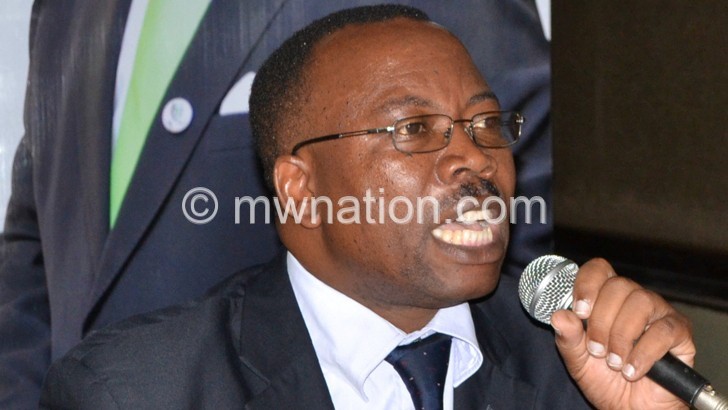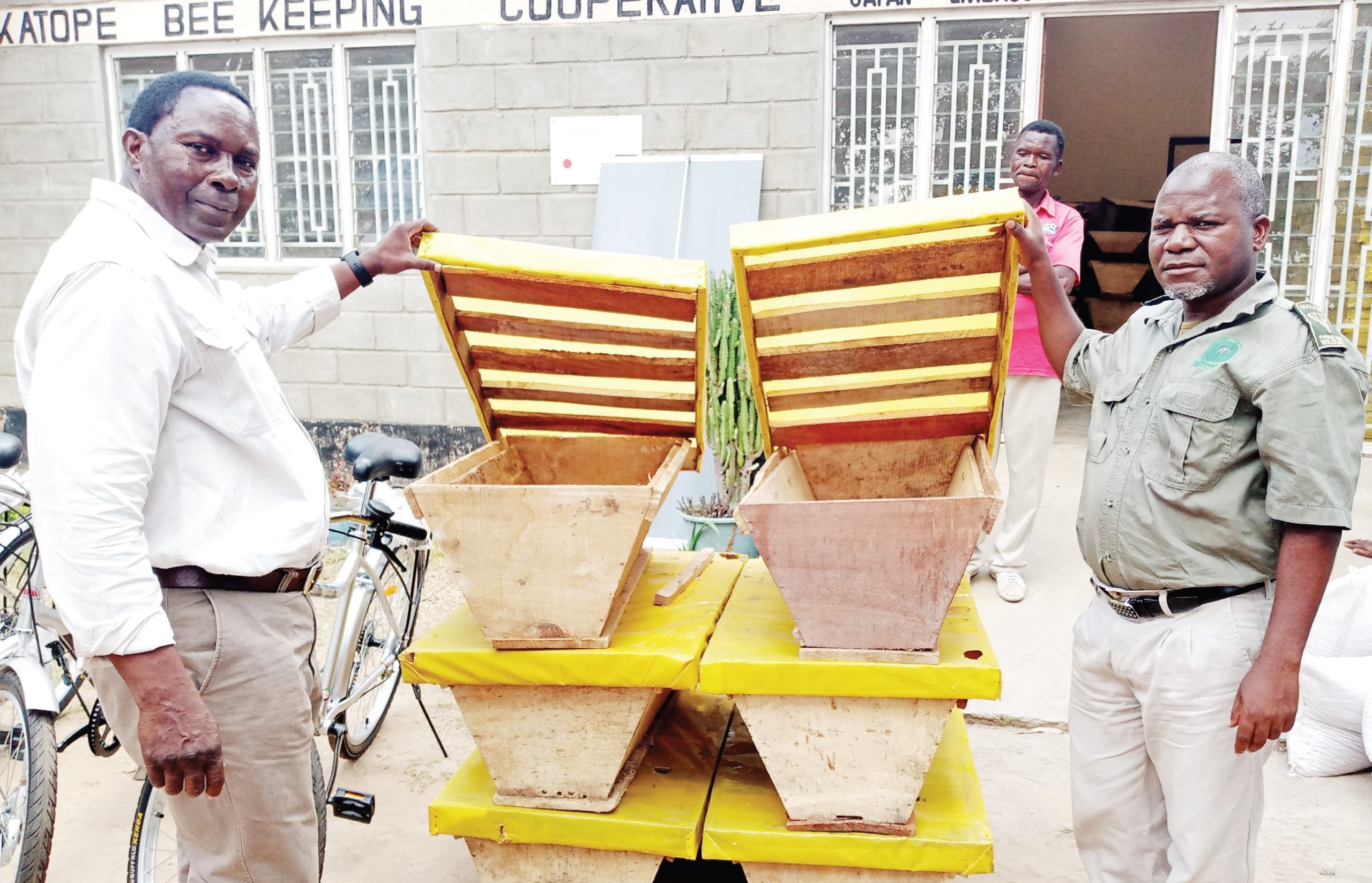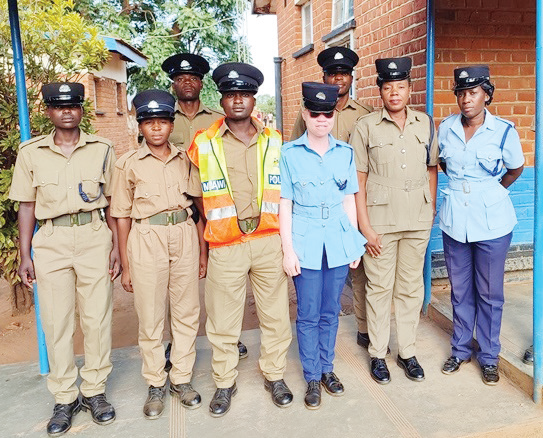Right to water: The debate
As Malawi water woes continue, the onus is on the National Assembly to amend the Constitution to include the right to water in the Bill of Rights, EPHRAIM NYONDO and KONDWANI KAMIYALA find different views. They write:
It was close to 8:48pm on June 20 when musician-cum-politician Lucius Banda posted on Facebook his experience after fears that he would go to bed without a bath, as the taps were dry.

He complained: “Kumaliza ka jogging kupita mu shower ndi thukuta, madzi asiya. Kampope kudzalira dododo… Eissssssh!” (You are sweating profusely after jogging and you go into the shower only to find there is no water supply).
As of last Thursday, the post attracted 346 likes and 229 comments, with most commentators saying that was just life as usual in Malawi while others wondered why the Balaka North parliamentarian was not using his political muscle to change things.
Banda’s post came a few weeks after Parliament run dry in May, leading to stench in the House. This led to Second Deputy Speaker Clement Chiwaya to ask Lilongwe Water Board (LWB) to consider the National Assembly in its rationing schedule.
That the Malawi water woes have affected the whole spectrum of the Malawi society, those gripped by the worst pangs of poverty to those in high places, is no hidden fact.
From Elita Nota, a Chikwawa villager who questions how the 2015-2016 Key Indicator Report of the Demographic and Health Survey could say eight in every 10 Malawians have steady access to clean water when she drinks from a shallow well together with livestock, to Deliwe Banda, a town dweller who envisions six months of taps that are dry for six days in a week. The water woes, have not spared the august House, where laws are made, amended and repealed runs dry and members had to debate in stench.

As some observers claim, Malawians have not been able to demand their right to water since it is not enshrined in the Constitution as is the case in other African countries like Uganda, South Africa, the Democratic Republic of Congo (DRC).
Others feel although Malawi is party to several conventions like the Convention for the Elimination of Discrimination Against Women (Cedaw) and the Convention on the Rights of the Child (CRC), the absence of water as a right in the Bill of Rights hinders people’s right to demand clean and safe water.
While equating the right to water as the right to life, since water is life, Centre for Social Research (CSR) deputy director Blessings Chinsinga believes members of Parliament have the power to not only consider including water as a right in the constitution, but also the power to push for more funding to the water sector.
“Parliament is important as it can make or break the country. Why should we, after over 50 years of independence, still struggle with access to clean, safe and quality water? Although on paper, 84 percent of Malawians has access to clean and safe water, on the ground, less than 50 percent have that access,” says Chinsinga.
According to him, parliamentarians know the depth of the problem when they interact with their constituents.
Currently, CSR is partnering with the Glasgow Caledonian University’s Centre for Climate Justice (CJU) in the Water for All project, with funding from the Scottish Government to find ways on how issues of human rights, social justice, equity and equality, vulnerability and climate change feature in Malawi’s water management. One of the approaches is to lobby parliamentarians to consider including water as a right in the Constitution and increase funding to the water sector, an important component in agriculture, health and sanitation, education, transportation, energy and gender.
Chinsinga feels making water a right would result into more resources from the international community.
A 2010 United Nations General Assembly resolution recognising the supremacy of the right to water and sanitation over other rights, calls upon States and international organisations to provide financial resources, help capacity-building and technology transfer to help countries, especially developing countries, to provide safe, accessible and affordable drinking water for all.
Some Malawian parliamentarians, however, differ on whether making water a right is the means to an end or an end in itself.
Kasungu South East parliamentarian Khumbize Chiponda calls for a ‘revolution’ if more Malawians are to access clean and safe water.
“We have large water bodies, yet we remain thirsty. A fool, they say, is thirsty while in water. It is mostly women who are suffering. What was allocated to the State House in the budget was higher than the allocation to water,” says Chiponda.
Phalombe East legislator Amos Mailosi, who is a member of the agriculture and irrigation committee of Parliament and the legal affairs committee, feels water resources are dwindling in the country because catchment areas are depleted.
“Our laws need hauling as they are outdated. Imagine, some penalties in the Forestry Act are as low as K10 000,” says Mailosi.
But others, like Nsanje South West Joseph Chidanti Malunga think making water a right could not solve the problem. “The right to education is guaranteed in the Constitution, but do we have quality education? The problem is not legislation, but poor funding,” he observes.
In the current budget, K255 million was allocated to the water sector, which is for Other Reccurent Transactions (ORT), which trickles down to regions and eventually districts for water and irrigation departments. Such paltry funding is not new. For instance, between 2006 and 2010 water sector funding to Dedza, Chikwawa and Nkhotakota was less than 0.5 percent in each district, according to Malawi Economic Justice Network findings released in 2010.
Chairperson for the agriculture and irrigation committee Felix Jumbe believes making water a right is not the solution. He cited the Democratic Republic of Congo, whose Constitution guarantees the right to water but is in a worse situation than Malawi.
“We have to work on some laws like the 1995 Water Works Act. Section 6 of the act gives powers to regional water boards to provide water to urban centres. I plan to move a private members’ motion so that the law can allow the boards to drill boreholes in rural areas as well,” said Jumbe.
According to him, a ‘user pay’ principle has to be on the ground to ensure that water facilities are up and running. That way, he observes, repairs to water facilities, especially in the rural areas would not be a problem.
But national coordinator for the Water and Environmental Sanitation Network (Wesnet) Chrispine Bokho rebuts Jumbe’s comparison of Malawi and the DRC. “These are two different scenarios. Do we know what the situation was before water was enshrined as a Constitutional right? It may have been far worse than what it is today. Making water a right is the sure way to make government meet its obligation to improve the situation,” says Bokho.
Bokho observes that instead of donors and civil society supporting the government in improving the water situation, it is now the other way round. “If donors and non-governmental organisations (NGOs) pulled out of the water sector, there would be disaster,” he says.
He further disproves Malunga’s argument that although education is a right in Malawi, it is of low quality. According to him, emphasis for the time being is accessibility: “If water were a right, government would be obliged to make it more available to citizens. The question of quality can come later.”
As the debate on making water a right ensues, it is apparent there is no end in sight in Malawi’s water woes, it is clear parliamentarians like Banda and locals like Deliwe and Nota will continue groaning. n





